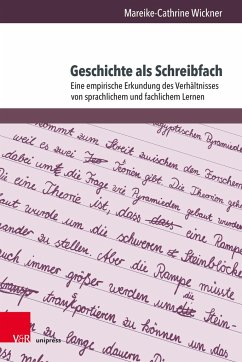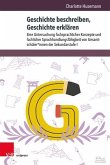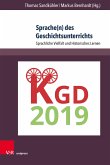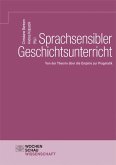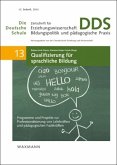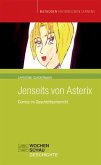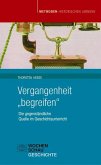Eine zielgerichtete und sinnvoll konzipierte fachsprachliche Förderung von Lernenden sollte mehr leisten als die Einübung historischer Fachbegriffe und typischer Satzmuster. Vielmehr muss es gelingen, authentische fachsprachliche Handlungen hinsichtlich ihrer Funktionalität vor dem Hintergrund konventionalisierter Kommunikationsanlässe (wie beispielsweise im Rahmen fachspezifischer Textsorten) zu erproben und demgemäß fachspezifische gedankliche Routinen zu etablieren. Ausgehend von diesen Annahmen widmet sich die Studie einerseits der empirischen Erkundung bildungs- und fachsprachlicher sowie fachlicher Fähigkeiten von Lernenden, die als Grundlagen fachsprachlicher Handlungsfähigkeit gelten. Andererseits werden Potentiale und Grenzen sprachbildenden Geschichtsunterrichts diskutiert.
Technical language support in the context of history lessons should be more than memorizing technical terms and acquisition of typical sentence patterns. Rather, it must succeed inexercising authentic historical speech actions. Such speech actions should be practiced in reference to their communicative functionality against the background of conventionalized communicative situations (such as in the context of technical text types) and accordingly establish technical mental routines. Based on these assumptions, the study on the one hand is dedicated to the empirical exploration of academic and technical language skills as well as historical knowledge of learners. On the other hand, potentials and limits of language-sensitive resp. language-forming history education are discussed.
Technical language support in the context of history lessons should be more than memorizing technical terms and acquisition of typical sentence patterns. Rather, it must succeed inexercising authentic historical speech actions. Such speech actions should be practiced in reference to their communicative functionality against the background of conventionalized communicative situations (such as in the context of technical text types) and accordingly establish technical mental routines. Based on these assumptions, the study on the one hand is dedicated to the empirical exploration of academic and technical language skills as well as historical knowledge of learners. On the other hand, potentials and limits of language-sensitive resp. language-forming history education are discussed.

